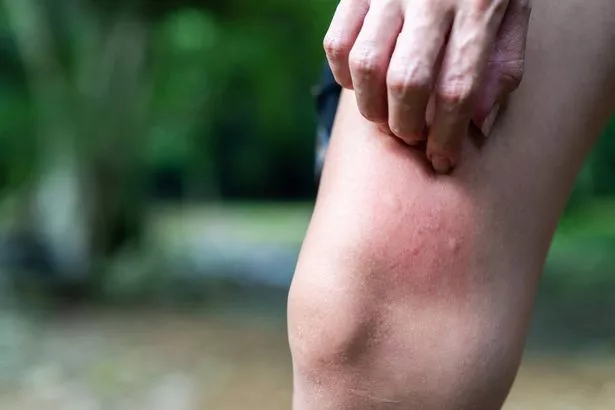It comes after cases were detected in the UK for the first time (Image: Getty)
(Image: Getty)
Holidaymakers have been issued an urgent warning over symptoms that emerge after four days as three cases of a potentially fatal virus have been identified in the UK for the first time. The UK Health Security Agency (UKHSA) has reported that oropouche virus disease, which claimed two lives last year, has recently been spreading throughout multiple nations.
The health authority stated that the cases discovered in the UK were identified in holidaymakers returning from Brazil. Transmitted through insect bites, this illness is typically not severe but can occasionally result in serious complications such as meningitis or brain inflammation.
Previously, it has been observed in nations throughout Central and South America, including Brazil, Peru, Argentina, Bolivia, Colombia, and Panama. Nevertheless, in 2024 numerous outbreaks emerged in these nations, alongside Cuba and Barbados, reports Surrey Live.
Furthermore, this year cases have been confirmed in Venezuela for the first time. In an update issued by the UKHSA, the organisation cautioned that symptoms generally appear four to eight days following a bite.
 Oropouche virus disease is most commonly spread by midges(Image: Getty)
Oropouche virus disease is most commonly spread by midges(Image: Getty)
The disease’s onset is “sudden”, with symptoms resembling those of other insect-borne illnesses including chikungunya, dengue, Zika virus disease and malaria. These include:
FeverHeadacheJoint painMuscle achesChillsNausea and vomitingRashSensitivity to lightDizzinessPain behind the eyes
The UKHSA continued: “Symptoms typically last up to a week but in about six out of 10 cases they can come back days or even weeks later. Most people recover fully, but in rare cases it can lead to more serious conditions like meningitis, Guillain-Barre syndrome or encephalitis (inflammation of the brain).
“The first ever deaths linked to the virus were reported in Brazil in July 2024, where, sadly, two people died.”
It advised that if you’ve recently returned from an affected region and have symptoms, it is “important” to seek medical attention and make sure you mention your travel history.
Treatment
There is no specific medicine to treat oropouche virus disease. Treatment focuses on symptom management: rest, drink plenty of fluids, and take paracetamol or other over-the-counter medications to alleviate fever and pain.
If you develop severe symptoms, particularly anything that might indicate brain involvement (such as severe headache, confusion, or neck stiffness), the UKHSA says you must seek medical attention immediately.
PreventionUse insect repellent containing at least 50 per cent DEETWear long-sleeved shirts and long trousers, especially during dawn and duskStay in places with air conditioning or window screens with fine mesh to keep out midgesUse insecticide-treated fine mesh bed nets if you’re sleeping in areas without screens – standard bed nets are less effective against biting midges, as these insects are small and can pass through the nettingChemical insecticides sprayed inside and outside can also help deter midgesremove standing water around your accommodation where insects might breed
If you are travelling abroad it is worth checking what vaccines are recommended via the Travel Health Pro website here.
Get daily headlines and breaking news emailed to you – it’s FREE

